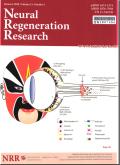Effects of Lycium barbarum polysaccharide on cytokines in adolescents with subthreshold depression: a randomized controlled study
IF 5.9
2区 医学
Q2 CELL BIOLOGY
引用次数: 0
Abstract
Abstract Strong evidence has accumulated to show a correlation between depression symptoms and inflammatory responses. Moreover, anti-inflammatory treatment has shown partial effectiveness in alleviating depression symptoms. Lycium barbarum polysaccharide (LBP), derived from Goji berries, exhibits notable antioxidative and anti-inflammatory properties. In our recent double-blinded randomized placebo-controlled trial, we found that LBP significantly reduced depressive symptoms in adolescents with subthreshold depression. It is presumed that the antidepressant effect of LBP may be associated with its influence on inflammatory cytokines. In the double-blinded randomized controlled trial, we enrolled 29 adolescents with subthreshold depression and randomly divided them into an LBP group and a placebo group. In the LBP group, adolescents were given 300 mg/d LBP. A 6-week follow up was completed by 24 adolescents, comprising 14 adolescents from the LBP group (15.36 ± 2.06 years, 3 men and 11 women) and 10 adolescents from the placebo group (14.9 ± 1.6 years, 2 men and 8 women). Our results showed that after 6 weeks of treatment, the interleukin-17A level in the LBP group was lower than that in the placebo group. Network analysis showed that LBP reduced the correlations and connectivity between inflammatory factors, which were associated with the improvement in depressive symptoms. These findings suggest that 6-week administration of LBP suppresses the immune response by reducing interleukin-17A level, thereby exerting an antidepressant effect.枸杞多糖对青少年阈下抑郁症细胞因子的影响:一项随机对照研究
越来越多的有力证据表明抑郁症状与炎症反应之间存在相关性。此外,抗炎治疗在缓解抑郁症状方面显示出部分效果。枸杞多糖(LBP)是从枸杞中提取的,具有显著的抗氧化和抗炎作用。在我们最近的双盲随机安慰剂对照试验中,我们发现LBP可显著减轻阈下抑郁症青少年的抑郁症状。我们推测LBP的抗抑郁作用可能与其对炎症细胞因子的影响有关。在双盲随机对照试验中,我们招募了29名阈下抑郁症青少年,将他们随机分为LBP组和安慰剂组。在LBP组,青少年给予300 mg/d LBP。24名青少年完成了为期6周的随访,其中LBP组14名青少年(15.36±2.06岁,3男11女)和安慰剂组10名青少年(14.9±1.6岁,2男8女)。我们的结果显示,治疗6周后,LBP组的白细胞介素- 17a水平低于安慰剂组。网络分析显示,LBP降低了炎症因子之间的相关性和连通性,这与抑郁症状的改善有关。这些结果表明,6周给予LBP可通过降低白细胞介素- 17a水平抑制免疫反应,从而发挥抗抑郁作用。
本文章由计算机程序翻译,如有差异,请以英文原文为准。
求助全文
约1分钟内获得全文
求助全文
来源期刊

Neural Regeneration Research
CELL BIOLOGY-NEUROSCIENCES
CiteScore
8.00
自引率
9.80%
发文量
515
审稿时长
1.0 months
期刊介绍:
Neural Regeneration Research (NRR) is the Open Access journal specializing in neural regeneration and indexed by SCI-E and PubMed. The journal is committed to publishing articles on basic pathobiology of injury, repair and protection to the nervous system, while considering preclinical and clinical trials targeted at improving traumatically injuried patients and patients with neurodegenerative diseases.
 求助内容:
求助内容: 应助结果提醒方式:
应助结果提醒方式:


